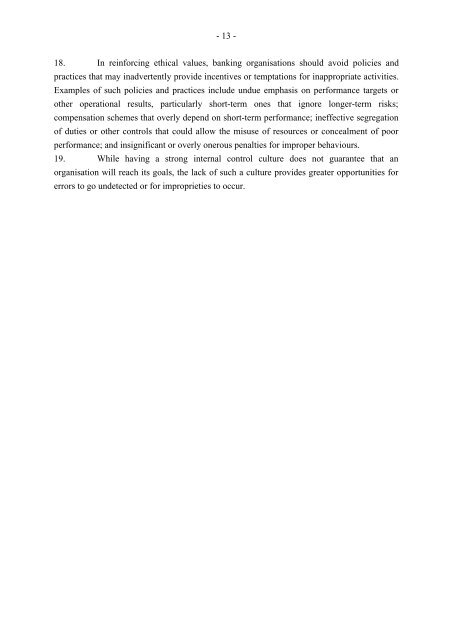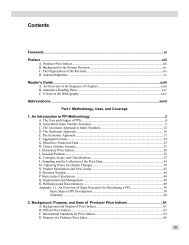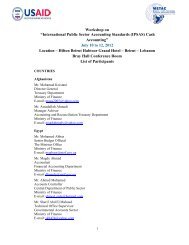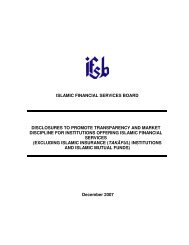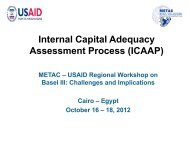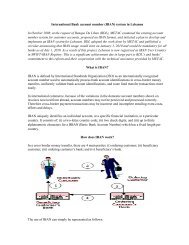Framework for Internal Control Systems in Banking Organisations
Framework for Internal Control Systems in Banking Organisations
Framework for Internal Control Systems in Banking Organisations
Create successful ePaper yourself
Turn your PDF publications into a flip-book with our unique Google optimized e-Paper software.
- 13 -<br />
18. In re<strong>in</strong><strong>for</strong>c<strong>in</strong>g ethical values, bank<strong>in</strong>g organisations should avoid policies and<br />
practices that may <strong>in</strong>advertently provide <strong>in</strong>centives or temptations <strong>for</strong> <strong>in</strong>appropriate activities.<br />
Examples of such policies and practices <strong>in</strong>clude undue emphasis on per<strong>for</strong>mance targets or<br />
other operational results, particularly short-term ones that ignore longer-term risks;<br />
compensation schemes that overly depend on short-term per<strong>for</strong>mance; <strong>in</strong>effective segregation<br />
of duties or other controls that could allow the misuse of resources or concealment of poor<br />
per<strong>for</strong>mance; and <strong>in</strong>significant or overly onerous penalties <strong>for</strong> improper behaviours.<br />
19. While hav<strong>in</strong>g a strong <strong>in</strong>ternal control culture does not guarantee that an<br />
organisation will reach its goals, the lack of such a culture provides greater opportunities <strong>for</strong><br />
errors to go undetected or <strong>for</strong> improprieties to occur.


